Ed Reggi
St. Louis, Missouri

Ed Reggi is a lifelong storyteller who has the stories to prove it. The Digital Strategist, who also manages the station’s digital storytelling initiative, is responsible for digital engagement at the Nine Network of Public Media, the St. Louis PBS television station affiliate. Under his leadership, the Nine Academy is helping community members develop 21st century communication skills who learn to share their personal and community’s stories. The Nine Academy began in 2009, as a community engagement mechanism when the Nine Network started filming HOMELAND, a documentary on immigration from America’s heartland. The idea was to teach the community-at-large how to effectively produce their own digital stories related to immigration. Meanwhile, Ed’s drive to push the intersection of digital and community producing has led to successful partnerships with CITI, United Way, College Bound, St. Louis County Children’s Services Fund, and America SCORES. Since 2009, Reggi has lectured frequently on the topics of open source digital storytelling, social media driven strategies for nonprofit organizations, 21st century new media literacy, and how digital storytelling will influence the future of public media.
Before leaving his native Brooklyn, New York to join midwest living, Reggi worked as a professional Emmy award winning actor and director. Over the past decade, he has managed to create not only a buzz in St. Louis but founded a few local cultural events along the way – these include an Improv Festival, Fringe Festival and 48-Hour Film Challenge. Prior joining PBS, Ed served as the Director of Theatre and Voice at COCA in University City.
Presentation(s):
Inquiry and Research in Arts-Based Community Development 1
Day 2 / Apr, 13 @ 10:30 am
Lower Level : Room D
This session is a series of inquiries briefly presented by fellows in an arts-based community development training. Each was asked to create a 10 minute presentation about their research.
MARGIE P. HOLLINS: How can theater cross barriers to raise breast cancer awareness among young African-American women who may not know that they are at risk?: African American women are among the smaller population for breast cancer, but have the highest fatality rate. How can cultural-specific messages in theater provide motivation for behavior change, and inspire Action?
BETH DROUANT: Advocacy, Self Reflection, and Disability: How can polarized communities use art to create a stronger interrelation with pride and visibility? How do we bridge the gap between Deaf and deaf, speaking and signing, disabilities and abilities?
ED REGGI: Stories, Screens and Value: How do stories shape our self identity? How does storytelling form our subconscious and how do we relate incidents in our life to stories that we have read or watched? How do stories allow participants to experience different worlds altogether. Throughout time, real life and fictional stories have enlightened tribes, societies and entire cultures. How has the experience changed with the intersection of digital and storytelling?
RENEE FRANKLIN:Redefining Museum Community Engagement: Museums benefit from public privileges and have the public responsibility to be accessible to everyone. Many mainstream museums “claim” to be developing strategies to attract new visitors and deepen their community engagement. Are they making the institutional commitment to achieve and sustain this goal?
LISA HARPER CHANG: Social Work Practices in Art Museums: How do museums become good members of the community? Can social work ethics and practices enhance the art museum’s role in building stronger, more inclusive communities? What are the benefits and challenges of this approach?
REGINA MARTINEZ:The Salerno House Chapter 1: Keys Open Doors: Unlocking our understanding of how to sustain community built on art and relationships. Presenting with Tabatha Pate.
LOIS INGRUM: The Doll Project: Can The Doll Project create understanding and learning about the need for public mourning, healing, and closure as a reaction to violent deaths in our communities?
The Community Arts Training (CAT) Institute at the St. Louis Regional Arts Commission created a one year pilot training program that further builds on the the CAT Institute’s cross-sector training in arts-based community development. The Institute’s Graduate Education and Research Program – referred to by the fellows and faculty as TIGER – is an expansion of the Institute’s training with an inquiry-based curriculum for artists and for community/social service practitioners to examine and go deeper into their arts-based work.
TIGER Fellows are CAT Institute graduates and experienced practitioners who have indicated they are ready to expand their scope of practice and become more assertive in their approach to significant community challenges to create positive social change. TIGER aims to produce graduates who will apply arts-based tools and strategies to specific issues and have a more honed, intentional focus for effecting change. The TIGER Fellows are tasked to engage in meaningful research in an area of inquiry of their own choosing with the intention of deepening their individual effectiveness and influencing the field of arts-based community development.
TIGER is underwritten by RAC and the Kresge Foundation. TIGER Faculty: Kathryn Bentley, William Cleveland, Elizabeth Goebl-Parker, Jane Ellen Ibur and Roseann Weiss (Director).





